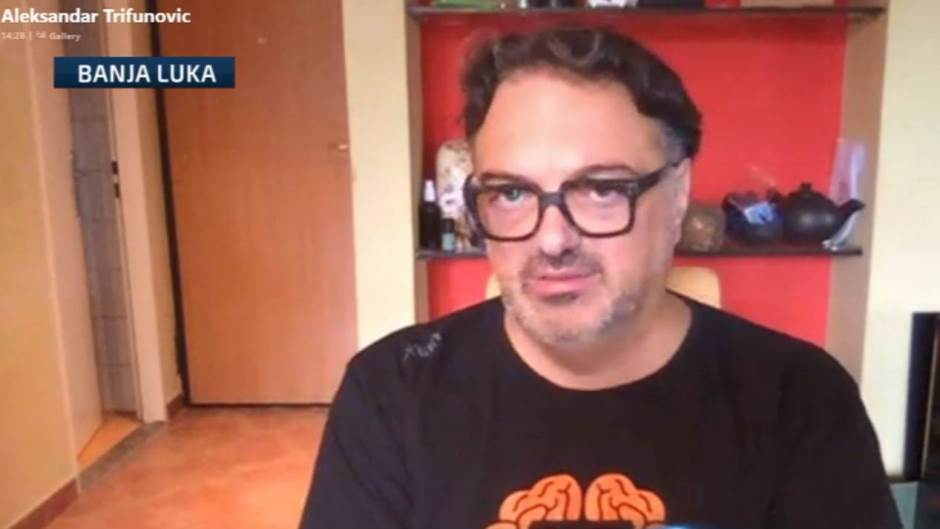Journalist: The region is addicted to violence and that's its biggest tragedy

The region is addicted to violence and that is the biggest tragedy of the territories of former Yugoslavia, activist and chief editor of Bosnia's independent news website 'Buka' Aleksandar Trifunovic told N1.
It would be normal if the people were dreading the violence – 25 years after the war conflicts that occurred here, but it is usually “treated as betrayal and anti-war policies are seen as the policies of the weak,” according to him.
Elections are taken emotionally in all the countries and its results are mostly the result of emotions, not of pragmatism, he added.
“It usually serves to determine a national stance, which is a basis to gain benefits. Benefits come to those running the policies and citizens never get any use of it. That's how I see the elections in Montenegro,” said Trifunovic, days after the parliamentary elections in this country, which sent President Milo Djukanovic's Democratic Party of Socialists (DPS) into the opposition after nearly three decades of the rule and brought the victory to the opposition 'For Montenegro's Future' coalition.
Trifunonvic assessed that Djukanovic party's defeat after three decades is a huge thing and that seeking the excuses about Djukanovic being the only factor of stability in Montenegro is actually “the result of the illusion of democracy which ruled the country.”
“The illusion of democracy has led to what is happening now. He wouldn't have been in power for 31 years if he had no support of the church. One cannot prove anything with violence. One cannot show the greatness over minority but the lack of power to deal with the situation,” he said, expressing hope that the ongoing incidents will remain isolated and won't repeat again.
Commenting on the celebrations of Montenegro's election results in Banja Luka, the administrative centre of Bosnia's Serb-dominated entity Republika Srpska, Trifunovic noted that this mostly referred to the Law on Religious Freedoms.
“The sympathies here are on the side of the (Serbian) Orthodox Church, and the victory of the Church was celebrated here,” he said.
In the context of the 1990s war, Trifunovic emphasised that Bosnia was the country that suffered the most from the conflict and that 25 years later this should be a country where people were dreading any conflicts.
“But, what happens is the opposite. Violent policies and violent narratives are winning. IF you force an anti-war narrative, you are being treated as a weak person and grouped as a traitor. The region is addicted to violence, that's its biggest tragedy,” he stressed, adding that the only way out of this is the integration into the European Union.
According to Trifunovic, the solution to the status of Kosovo is on the way, which might trigger a new political wave that we are about to witness.
Kakvo je tvoje mišljenje o ovome?
Učestvuj u diskusiji ili pročitaj komentare





 Srbija
Srbija
 Hrvatska
Hrvatska
 Slovenija
Slovenija







